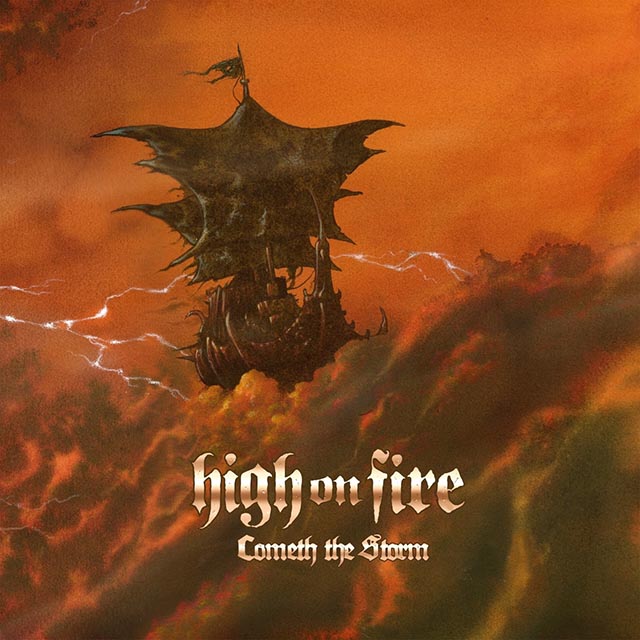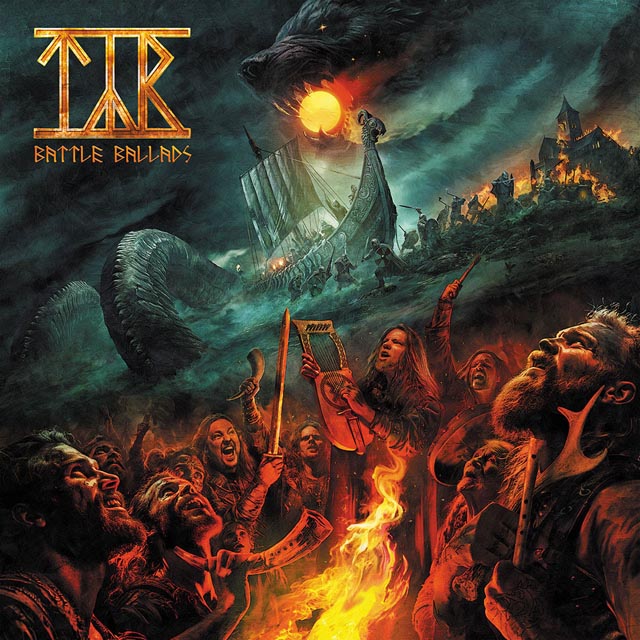 Metal Insider’s Top 5 is a column where we count down the top five of…well basically anything.
Metal Insider’s Top 5 is a column where we count down the top five of…well basically anything.
Last week, God Forbid announced that they were signing a new label deal with Victory Records after a long relationship with Century Media Records. And tomorrow, Chimaira will be releasing their first album, The Age Of Hell, via new label home eOne Music. These two recent events got us thinking about other bands who switched labels at a pivotal point in their careers. Sometimes a label change up can be disastrous for a band. Other times, though, finding a new label home can lead to new found success.
With that in mind, we decided to come up with the Top 5 label moves made by bands from indies to majors. We took into account where said bands were at career-wise before switching from labels, the success they gained after the switch, and whether or not their credibility remained intact. So without further ado, here’s Metal Insider’s Top 5 major label moves made by bands:
5. Lamb Of God from Prosthetic Records to Epic Records
Like Mastodon (who also made it on this list), Lamb Of God have gained success on a major label without sacrificing their sound. In fact, their last two albums have debuted on Billboard’s top 10, even though they’re hands down the heaviest band on Epic Records (sorry Hellyeah). Selling more records while remaining as heavy as ever is something the majority of bands on major labels haven’t been able to do (just ask Metallica and Avenged Sevenfold).
4. Morbid Angel from Earache Records to Giant Records
Morbid Angel are considered to be one of the most influential death metal groups. And most of that is thanks to 1993’s Covenant, their first with then-major Giant Records. Not only was the band’s video for “God Of Emptiness” featured on MTV’s Beavis And Butt-head, but Covenant also went on to be one of the best selling death metal albums, with over 127,000 copies sold. Would that have been possible on Earache or their first label, New Renaissance? Probably not.
3. Slayer from Metal Blade Records to Def Jam Records
After releasing their first two albums via Metal Blade Records, Slayer went on to do something unexpected: sign with Def Jam Records. Today it doesn’t seem so weird, but for Rick Rubin (co-founder of a largely hip-hop label) to work with a heavy metal band (let alone one like Slayer) was unusual back in the day. It ended up paying off, though, as the odd pairing resulted in one of metal’s pivotal albums, Reign In Blood. The band’s stuck with Rubin and Def Jam since, which has actually led to the band being on quite a few majors (Geffen, Island, Sony) as the label continues to change hands.
2. Mastodon from Relapse Records to Warner/Reprise 
Mastodon were already critical darlings thanks to their first two releases via Relapse Records. But not only did the quartet receive more exposure after signing with Warner Bros, but they also did it without selling out. While their major label debut, Blood Mountain, did have Queens of the Stone Age’s Josh Homme on a song, as well as a slightly more mainstream sound, they followed that up with a seven track concept album, Crack the Skye, that had two songs over 11 minutes long. With The Hunter coming out next month, the band’s credibility has remained intact and their fan base has grown.
1. Metallica from Megaforce Records to Elektra Records
Kill ‘Em All helped Metallica explode in the underground scene. And it most likely couldn’t have happened without Megaforce Records’ help (who took out loans to cover the recording costs and released the album after multiple labels in the NYC area turned them down). However, after signing with Elektra Records shortly after releasing Ride The Lightning… well, we think you know what happened after that.
Honorable Mention: Opeth from Koch Records to Roadrunner Records
When Opeth signed to Roadrunner Records (a more trend-oriented rock and metal label at the time) in 2005, fans flipped out. It turned out, though, that fans had no reason to worry that the progressive death metal group would “sell-out.” Ghost Reveries and Watershed not only proved to be commercial successes, but also showed that the band wasn’t jumping trends or becoming more mainstream just because they were on Roadrunner. It also helped Roadrunner gain back respect from the underground scene, who criticized the onetime premiere death metal label for starting to swing towards mainstream metal acts.






